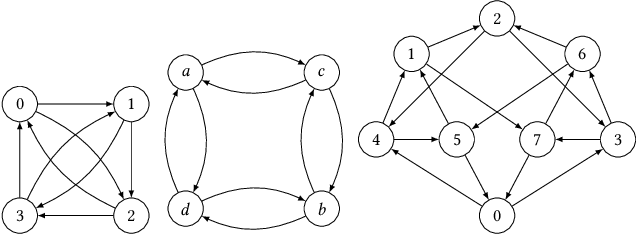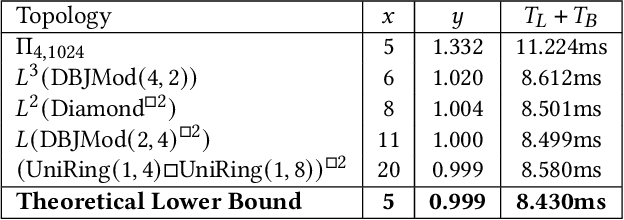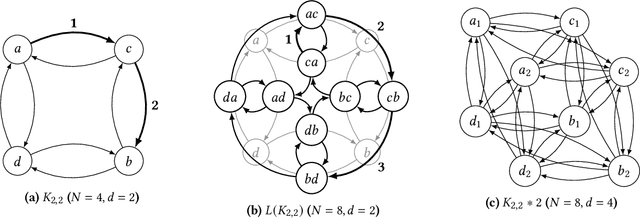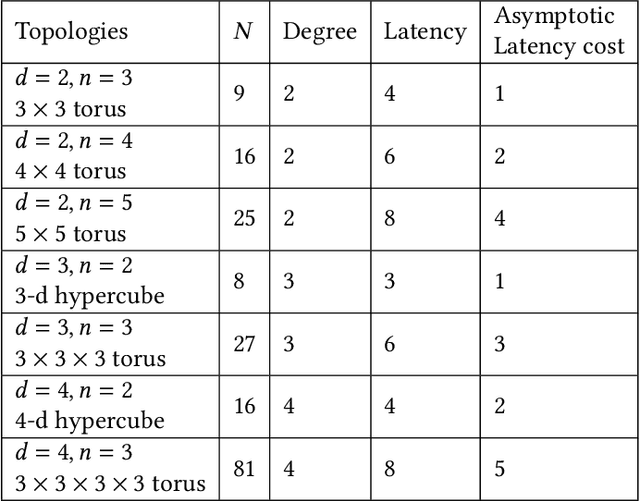Optimal Direct-Connect Topologies for Collective Communications
Paper and Code
Feb 07, 2022



We consider the problem of distilling optimal network topologies for collective communications. We provide an algorithmic framework for constructing direct-connect topologies optimized for the latency-bandwidth tradeoff given a collective communication workload. Our algorithmic framework allows us to start from small base topologies and associated communication schedules and use a set of techniques that can be iteratively applied to derive much larger topologies and associated schedules. Our approach allows us to synthesize many different topologies and schedules for a given cluster size and degree constraint, and then identify the optimal topology for a given workload. We provide an analytical-model-based evaluation of the derived topologies and results on a small-scale optical testbed that uses patch panels for configuring a topology for the duration of an application's execution. We show that the derived topologies and schedules provide significant performance benefits over existing collective communications implementations.
 Add to Chrome
Add to Chrome Add to Firefox
Add to Firefox Add to Edge
Add to Edge